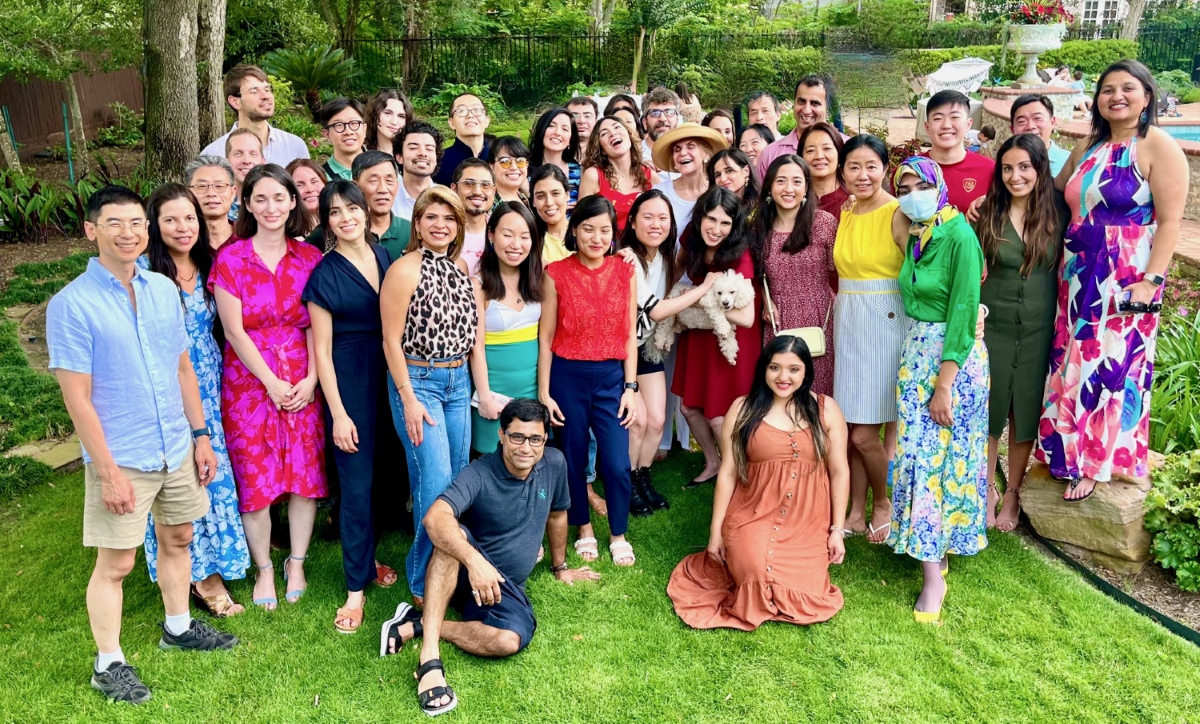With Kopchick Fellowship support, Maliha Munir’s research aims to make immune cells more effective against cancer
September 05, 2025

Cancer Biology PhD student Maliha Munir is advancing innovative cancer immunotherapy research with support from the Charlene Kopchick Fellowship, and guidance of her advisor, May Daher, MD. Munir’s work focuses on engineering natural killer (NK) cells — immune system fighters that recognize and destroy cancer cells — to withstand the harsh environments of solid tumors and remain effective in attacking them.
Confronting the challenges of solid tumors
Solid tumors remain among the most difficult cancers to treat because they create hostile environments that weaken immune cells. Munir’s project aims to give NK cells the tools they need to survive and thrive in those conditions, paving the way for therapies that are more resilient and more effective for patients.
“Solid tumors create a harsh environment that weakens immune cells. I’m engineering NK cells with a viral gene that helps them survive better and continue killing cancer cells.”
Munir’s interest in solid tumors is both personal and scientific. These cancers remain some of the most difficult to treat, with limited and often ineffective options for patients. At the same time, breakthroughs in immunotherapy have reshaped the field.
“The chance to combine these two areas — to improve therapies for solid tumors using cutting-edge immune engineering — felt like the perfect way to make an impact.”
This intersection where the toughest challenges meet the most promising innovations has defined her path as a researcher.
Choosing a home for translational science
Her decision to pursue a doctorate at The University of Texas MD Anderson Cancer Center UTHealth Houston Graduate School of Biomedical Sciences was guided by her commitment to translational research.
“I’ve always wanted to turn lab discoveries into real treatments. MD Anderson stood out for its world-class science, patient-focused mission, and supportive, collaborative environment. It’s a place where you can grow while staying motivated through the challenges of a PhD.”
Inspiring the future — from cancer therapies to future scientists
With her fellowship and research momentum, Munir is thinking about the future. She hopes to lead a program dedicated to developing immune-based cancer therapies while also mentoring the next generation of scientists. After graduation, she plans to continue in biotech, contributing to the development of next-generation cell therapies designed for real-world impact.
“My ultimate goal is to bring innovative, practical solutions to the clinic.”
Munir is quick to encourage new graduate students to take their time in building the right foundation.
“Take your time finding the right project and mentor — it makes a big difference. Don’t be afraid to ask for help, build a strong support network, and most importantly, stay curious and remember why you started this journey.”

Munir and her lab mates at the Cell Therapy Institute are pictured at their summer party.
Above all, Munir emphasizes the importance of community and representation in science.
“I’m incredibly thankful for the support of my mentors, peers, and the Kopchick Fellowship. Representation in science matters, and I hope to inspire others to follow their passion. Research is a team effort, and together we can make cancer history.”







